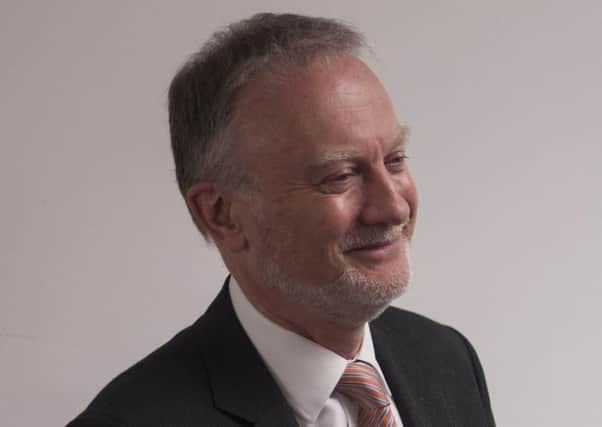John Sturrock: The certainties of the past will no longer afford security in the future


And yet much of our contemporary political discussions are conducted as debates on the apparent assumption that there are right or wrong answers to complex problems and that, once certain decisions have been taken, no matter the basis for doing so, they cannot be reviewed in light of changed circumstances or new information.
This approach is deeply damaging, to our ability to cope with a complex world and to the reputation of those involved. In attempts to appear strong, those committed to dualist thinking undermine their position and lose ground. We need to find ways to enable our decision-making to be confidently nuanced, subject to change, provisional, open to multiple options, willing to adapt.
Advertisement
Hide AdAdvertisement
Hide AdMore than this, though, we need to come to terms with the notion that, just as no man is an island, no community, tribe, political party, nation or continent can exist without reference to others. Now, as perhaps never before, we are all inter-connected. The old boundaries, physical, political and psychological can no longer sustain separateness. Walls and borders cannot protect us in the way they might have done in the past.
This has profound implications for how we conduct political discussions and engage with others. To be “independent” in such a world probably makes no literal sense. To be in “union” with others in a diverse world where differences so clearly exist tends to create hierarchies and resentments, fear and anger, and may indeed perpetuate unhealthy dependence.
We need to transcend these strait-jackets which we impose linguistically and otherwise on our thinking and ability to act. The key may be to recognise our inevitable interdependence – our reliance on others alongside our own need to thrive.
In biology, mathematics and social science, we are being told that cooperation is the key to survival. Survival of the fittest in the sense of seeking to prevail over others by force (physical, psychological or political) is not, in the long run, a sustainable proposition. Ironically perhaps, if we skilfully help “the other”, we will tend to help ourselves and optimise the outcomes for all. But this does need us to take a longer view rather than merely seeking relatively short-term notional victories which, if only in hindsight, will usually turn out to be pyrrhic or at best sub-optimal. In a zero-sum game, there are no real winners.
One of the problems in a binary world is that language is used which perpetuates and encourages polarity and antagonism. Argument becomes personal and offensive, creating its own downward spiral of abuse. Civility is the price paid with the concurrent loss of the ability to engage constructively in the public square.
Take two current examples of the impact of such positional politics:
(i) the effects of changes in the earth’s climate will vary in different parts of the world. But overall, our species is threatened with significant and detrimental impacts which are likely to have implications globally for billions of people.
There is only one way to address this meaningfully and that is on a global scale and, yet, the interests of individual communities, nations or financial institutions are still dominant, creating division and increasing risk. Interdependence is the only platform for action which will be effective.
Advertisement
Hide AdAdvertisement
Hide Ad(ii) in the UK, there is a continuing controversy over the future of Scotland as a constituent part of the nation. The controversy is viewed as being “part of the union” or “independent” of it, with the referendum in 2014 cast in Yes/No terms. A similar approach underscored the debate over whether the UK should “remain” a part of the European Union or “leave”. The difficulty in negotiating a satisfactory outcome after a “leave” vote illustrates well the superficiality of the question posed and the arguments offered.
“In” or “out”, Scotland and the rest of the UK will remain closely intertwined, geographically, economically, culturally and linguistically. Our relationships will remain strong. While some links are less historically established, the same will be true generally with the rest of Europe, especially for young people. We are truly interdependent.
How can we work with these realities and build on them while acknowledging the growing need for multiple identities to be recognised? How can we address modern separateness and difference while harnessing common interest and offering mutual support? How do we reduce our reliance on fear-based notions of “them” to provide our sense of security and identity, while enabling a view of “us” to be much more inclusive than we have hitherto tolerated? These questions can only be answered, it seems, by accepting that we must live interdependently. The pursuit of interdependence, as a stage in our collective development which takes us beyond dependence and independence, seems critical to our futures.
The time has surely come for an interdependence movement.
Professor John Sturrock QC, Collaborative Scotland